UMMC School of Nursing’s traditional BSN track opens in Oxford
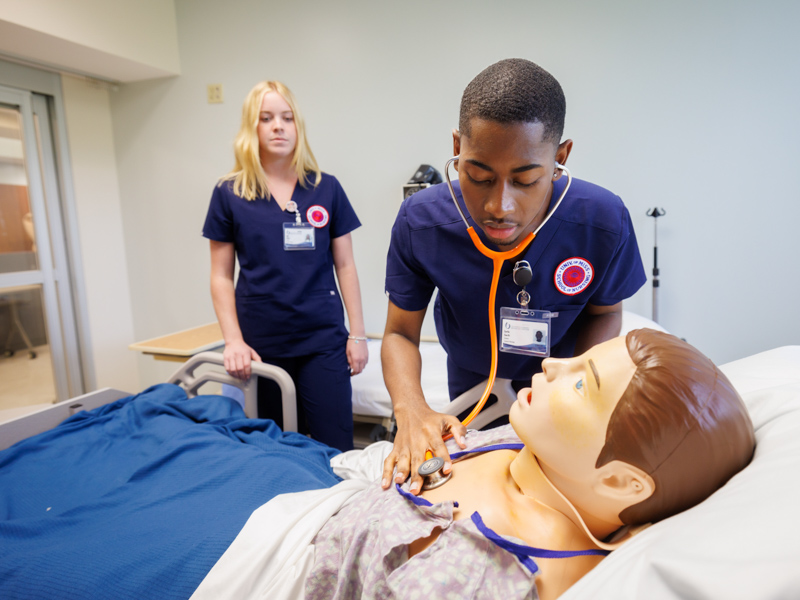
A four-year Bachelor of Science degree from the University of Mississippi Medical Center School of Nursing can now be earned in Oxford as well as Jackson.
The first class of traditional BSN students started studies Tuesday at the South Oxford Center near the University of Mississippi campus.
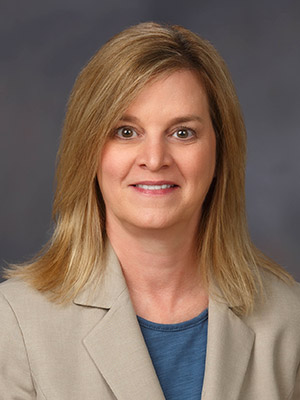
“We’re excited that classes have begun for our first cohort in our traditional BSN track in Oxford,” said Dr. Tina Martin, dean of the UMMC School of Nursing. “This is more than offering a program in a new location. It’s allowing more students to enter the rewarding career of nursing at a time when Mississippi and the rest of the country has a shortage of nurses.”
The UMMC School of Nursing has a traditional BSN enrollment of an estimated 200 students at the Medical Center in Jackson. In Oxford, 48 students are in the first traditional BSN cohort, with plans to expand enrollment to 70 next year.
Enrollment growth will place more nurses by patients’ bedsides, said Dr. Leigh Holley, associate professor of nursing and assistant dean for the UMMC School of Nursing’s Oxford instructional site.
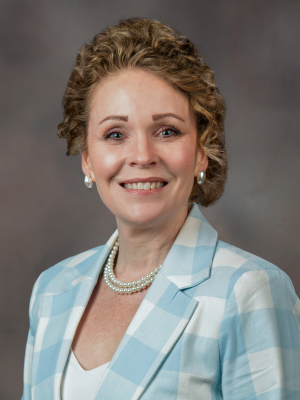
The traditional BSN program follows the “2+2” model of students taking foundational academic courses during their freshman and sophomore years before moving into nursing courses at the start of their junior year.
The UMMC School of Nursing began in 1948 as the state’s first baccalaureate nursing program in the state in Oxford. The nursing program then moved to the Medical Center campus in 1956, following the School of Medicine.
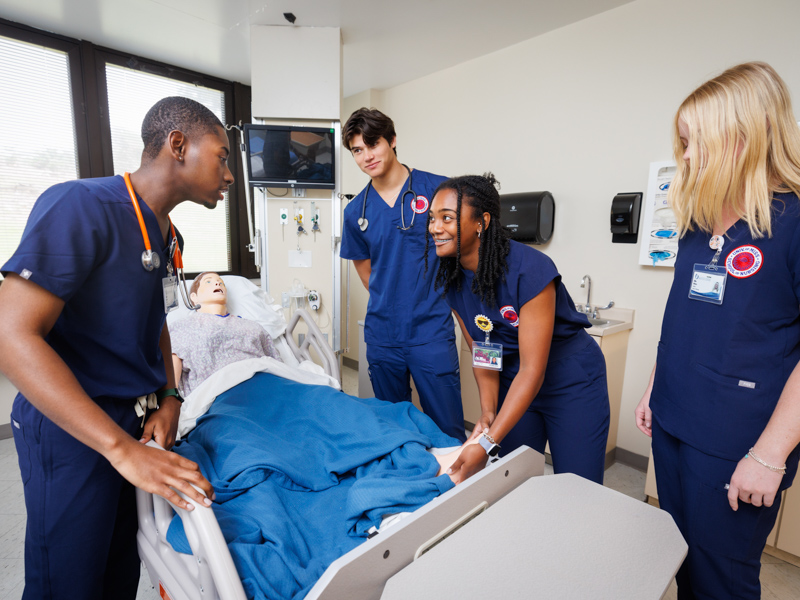
The classes now underway are the first traditional BSN classes in Oxford since 2014. The traditional BSN students join accelerated BSN students in Oxford. The accelerated BSN program allows graduates with four-year degrees in other disciplines to earn a BSN and take the registered nurse licensure exam in about a year.
The traditional BSN program being in Oxford as well as Jackson gives students more choices, Holley said.
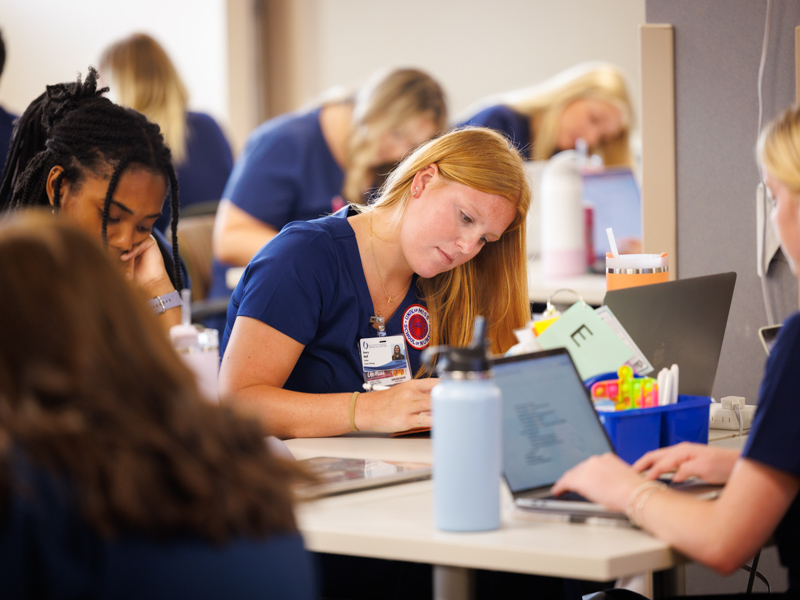
“Some nursing students may not be able to move to the metro Jackson area for a traditional BSN program, but they still want the value and expertise of a UMMC nursing degree,” she said. “Others may be involved in athletics and campus life at the University of Mississippi and want to complete their nursing degrees in Oxford. The traditional BSN program being available in Oxford as well as Jackson gives nursing students options.”
For BSN student Laila Totten of Olive Branch, the best asset of the traditional BSN program in Oxford is the location.“I’m familiar with Oxford because I’ve been an Ole Miss student the past two years,” she said, “and my friends are here.”
Avery Wolf of Southaven found the new Oxford-based BSN attractive. “This way, it’s easier to go home, and I could keep my apartment.”
Elijah Barberi of Ocean Springs said a four-year BSN program made better financial sense than earning a four-year degree and then enrolling in an accelerated BSN program.
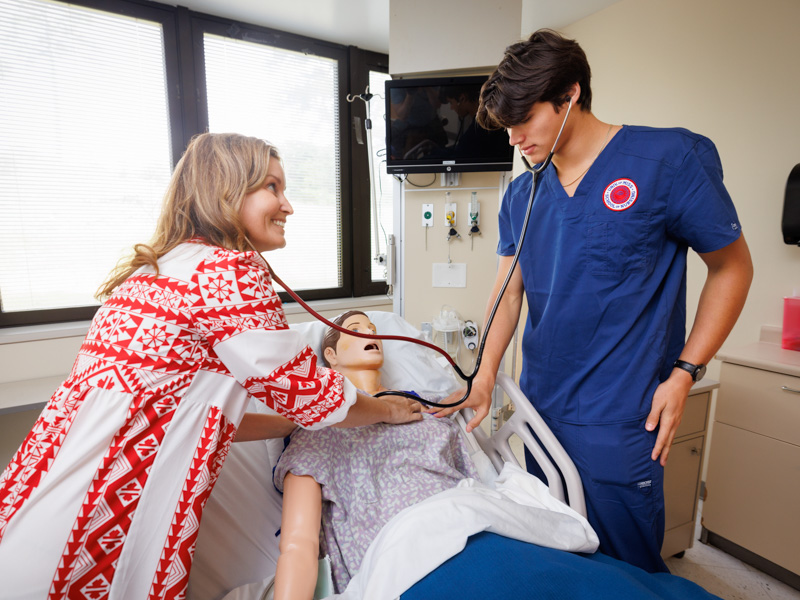
“I went to Pearl River Community College and then got a scholarship,” he said. “The scholarship covers two years, but not three. Plus, the pace of a traditional BSN is preferable to me – it will give me more time to learn.”
While UMMC nursing students are taking classes on the first floor of the South Oxford Center, construction is underway on the fourth floor to create more space for classrooms, simulation areas, faculty offices and a student lounge.
“It is a beautiful, state-of-the-art learning space that includes a large, high-tech classroom equipped for active learning, three additional simulation observation rooms, student lounge and private study rooms, and administrative offices,” Holley said. “The space serves as a testament to a wonderful collaboration between the University of Mississippi and UMMC to educate students to transform health care in Mississippi and beyond.”
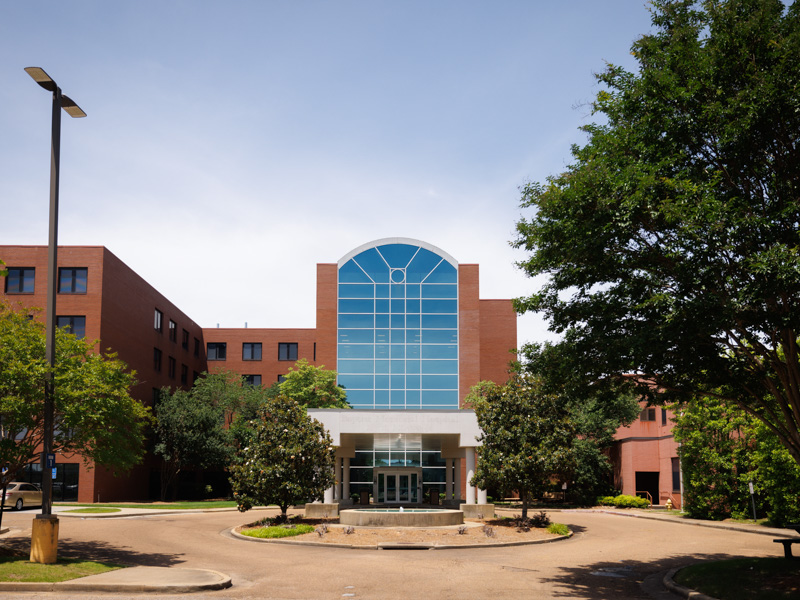
The center, the former Baptist Memorial Hospital, also includes a simulation lab inside what once was an intensive care unit. There, nursing students learn by caring for manikins including some high-tech models that have vital signs.
Because the simulation area still has the design of an ICU, nursing students learn in a space similar to where they may be working, Holley said.
"Having taught all over the U.S., I know many schools spend millions of dollars in attempts to replicate the authenticity of an acute health care environment,” she said. “Students participate in highly realistic simulated nursing practice in the former intensive care unit of the hospital, our simulation lab. We are incredibly fortunate to achieve this level of reality organically and provide a learning setting for our students that is precisely what they will experience in their professional careers. It is a safe learning environment for students which equips them for real-world nursing practice.”
Mississippi, like the rest of the country, has a severe nursing shortage, Holley said.
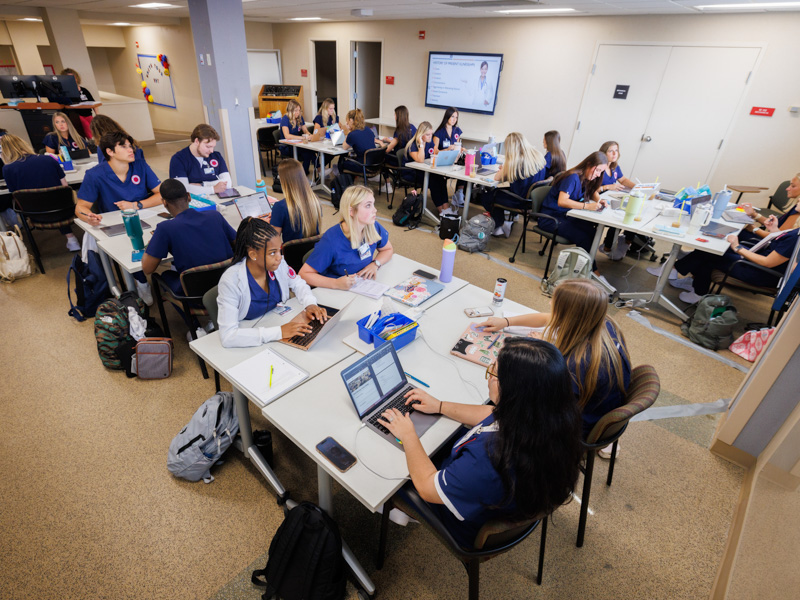
“Current estimates from the U.S. Census Bureau are roughly 29,370 Mississippi nurses to care for 2,940,057 Mississippi citizens, translating to about one nurse for every 10 patients. On the surface, this may seem a reasonable ratio. But imagine your loved one is one of three patients simultaneously experiencing a cardiac arrest, and there is only a single nurse to care for those three patients plus the other seven non-emergent patients,” she said. “When framed through this lens, the nursing shortage becomes personal and devastating very quickly.”
About a third of U.S. nurses plan to retire in the next 10 to 15 years, Holley said. “When these nurses leave the profession, they take with them decades of expertise and seasoned nursing practice. Given the nursing shortage also applies to qualified nurse educators, we are not able to admit and graduate enough nurses to keep up with the demand despite millions of qualified applicants to nursing programs.”
UMMC nursing students will be among those who will help solve the country’s shortages of nurses and nursing faculty, a fact that’s not lost on UMMC traditional BSN students.
“I’ve always known I wanted to help people,” said Barberi, who has several family members in health care professions. “Through nursing, I’m figuring out how.”


